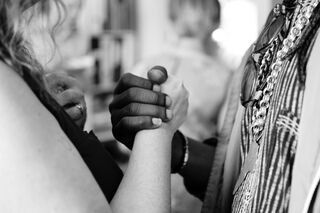Media
The Role of Social Media in Our Empathy Crisis
We can be the change.
Posted July 11, 2022 Reviewed by Abigail Fagan
Key points
- As it erodes empathy, social media has become dangerous to a healthy society.
- The empathy levels of American college students have dropped 40 percent, which some researchers attribute to the rise of social media.
- We are now living with an unprecedented level of polarization.
This is part two of a two-part series.
One of the primary reasons social media has become so dangerous to a healthy society is that it erodes empathy. The reason town hall meetings became a healthy medium for cross-aisle conversations is that people had to listen to each other, even when they disagreed.
Now that these conversations have gone online, empathy has fallen to the wayside. A recent meta-analysis of 72 studies conducted between 1979 and 2009, for instance, found that the empathy levels of American college students have dropped 40 percent, which the authors primarily attribute to the rise of social media.

Where is the love?
As empathy takes a back seat, actions are selected based on predetermined beliefs formulated on social media that are unlikely to hold up in real time. It is for this reason that Dylann Roof, the 21-year-old white supremacist who killed nine African-American worshippers in a church in Charleston, South Carolina in 2015, almost aborted his mission.
Roof reportedly told police that he “almost didn’t go through with it because everyone was so nice to him.” When one man pleaded with him to stop, he replied, “No, you’ve raped our women, and you are taking over the country,” followed by, as if to convince himself, “I have to do what I have to do.”
For these and other reasons, we are now living with an unprecedented level of polarization as political divisions are sowing distrust and tearing the United States and the world asunder. In the US, for example, never before in history have we experienced so few opposition party members voting for an incumbent president.
Go Along to Get Along
So what happened? Social media companies like Facebook promised us that its services would encourage people to care more for each other and express their authentic views more both online and in person. None of this has happened.
Instead, recent Pew research has found that people speak up less in person now for fear of retribution. Why? Social media has helped them realize there are many opposing views out there they would prefer not to confront.
Like the Nazi bureaucrats at Nuremberg, most people now “go along to get along” while a few outspoken extremists dominate the social media chat waves. Many now live in a virtual world characterized by a collective blandness in which we remain silent while those with little to lose run the digital roost and wedge us further apart from each other.
Be the Change
What can we do now to turn this around? Here are a few strategies you might consider.
Lobby your city, state and federal representatives for policies that govern virtual interactions that could become dangerous to society. Ratchet up the pressure on lawmakers to come up with regulations that help social media companies balance freedom of speech with accountability.
Get up from your screen and interact with people—especially those with different views. Recall that in the famous Milgram experiment on conformity, the only thing that stopped people from harming another person was when they were in the same room with them.
Volunteer. The research I’ve been reviewing for over a decade points to no better way to shift away from social media and the loneliness it produces and into the real world than to volunteer. It’s worth your time to find a weekly volunteer gig through which you meet new people and do something positive for those less fortunate than yourself in your community.


